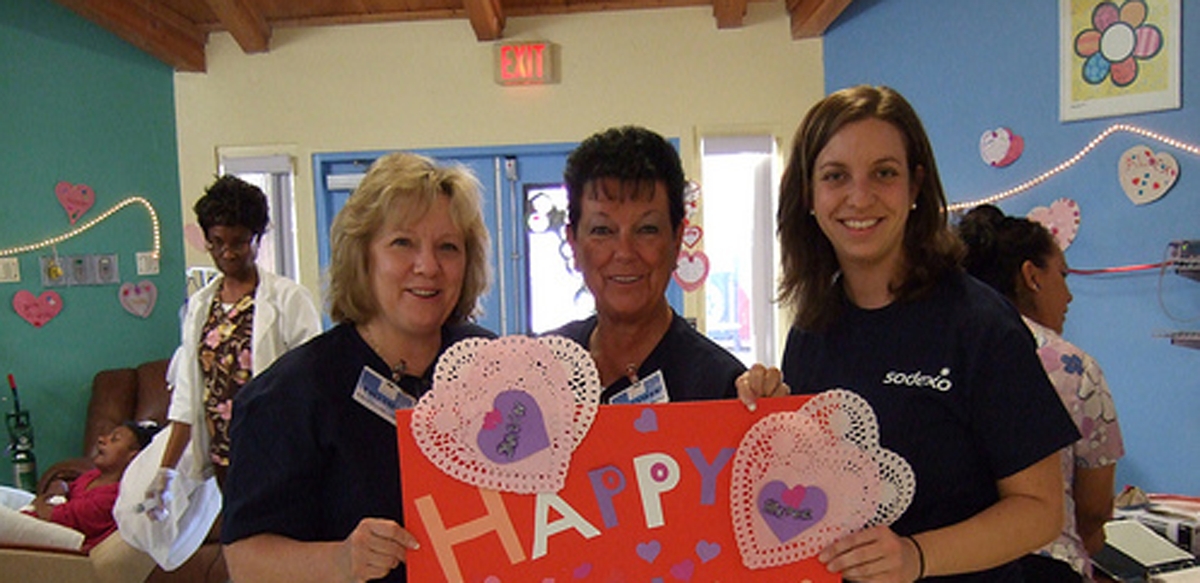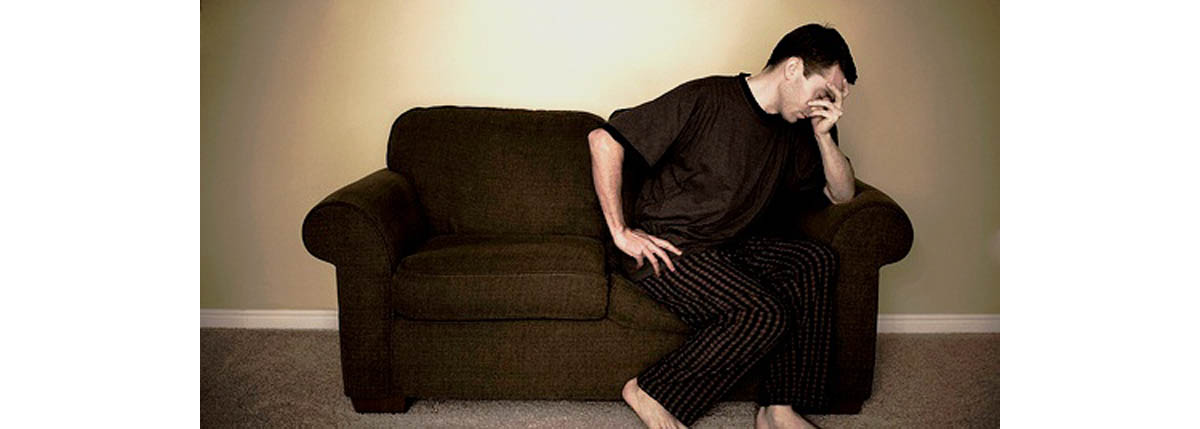As the holidays are approaching, online communities for people suffering from Post Traumatic Stress Disorder are increasingly discussing one thing — dread. If you have PTSD and are anxious about Christmas and the new year too, you are not alone.
Christmas decorations and gifts are all around already, and there is no denying that the holiday season is nearly upon us. People who suffer from Post Traumatic Stress Disorder often have great trouble coping with Christmas and the new year. How do you get through it as painlessly as possible?

Why Is The Holiday Season So Hard for People With PTSD?
People who suffer from Post Traumatic Stress Disorder are very frequently triggered by certain anniversaries. If a traumatic event happened during the holidays or in the winter, Christmas and the new year are likely to be extremely upsetting to a trauma survivor. In this case, the survivor's reaction is very clearly connected to the trauma itself. For example, a veteran may have lost mates around Christmas time, or a sexual abuse survivor could have been assaulted at a family gathering.
Many people go “home” to their parents or family during the holidays. Christmas is a time when there is a lot of pressure to be happy and to outwardly appear to be cheerful. The holidays are also an outlet to display a sense of belonging and community. There are plenty of ingredients right there that make someone with PTSD go into full trauma mode.
If your family was a source of trauma for you, it is quite obvious that thinking about them or actually visiting your relatives is going to be a horrible experience that may instantly give you the urge to get drunk and stay that way throughout Christmas.
The very expectation to feel the “holiday spirit” and make your loved ones happy is also a very problematic part of Christmas for many PTSD folks. You may feel guilty that you can't (fully) join in with the celebrations, even if your friends and relatives have been understanding and accepting.
Not all PTSD relatives are that understanding, though. Reading one veteran's wife's blog, I came some very interesting advice. To paraphrase, she advised relatives to accept that “their veteran” can't join in with Christmas by celebrating it in the home and totally accepting their loved one for not being able to join in. I don't know about you, but I don't think watching a triggering event happening all around while not actually participating helps much.
Help Yourself By Helping Others
So you don't feel up to joining in the celebrations, and you want to get through them in one piece without having too many flashbacks or feeling you just can't go on any more. You also want to make sure you don't ruin the festive period for others. For many people with PTSD, being active and contributing something practical really makes the holiday period easier.

You can do this in many different ways. I've heard about veterans volunteering at shelters for the homeless, by serving food for example. This is a really great way to stay busy, and to contribute to the community at the same time. Your family may also understand this is really important to you, and accept that you will not be at home.
It may not be necessary to go far to help others, either. If your family is organizing fancy dinners you can't be part of, you may be able to solve the problem by doing all the cooking and cleaning and staying in the background. Works like a charm, as long as nobody tries to push you into enjoying yourself.
Folks who are triggered by the holidays in part because they have no family or friends around to celebrate with should definitely look into activities to help others. Some ideas are a volunteering at a pet shelter, cooking food for elderly neighbors or staffing a domestic abuse helpline. If you are involved in any kind of PTSD support group or perhaps a religious community then you may get ideas local to you there.
Lots of PTSD sufferers have problems with addictions. If you are one of them, staying busy and constantly involved with other people may well help you stay away from drink or other addictions you may be struggling with. This is a great accomplishment, even if you still didn't like the experience.
Warn Your Family In Advance
Supporting a person with PTSD is not straight forward for many, and that particularly applies to a spouse. Are you a PTSD person who has a real problem with the holidays? Now is the time to bring this up seriously. Be as open and honest as you can, and tell your partner (and kids) what you can handle and what you can't. “Secondary trauma survivors” often find a lot of comfort in knowing the details that led to you being triggered by particular events. If you can't talk about it, writing it down and giving the letter to your partner may be a good idea.
Once you have had a good talk about the holidays and how it affects your PTSD, you will probably be able to come up with a plan that you are all happy with. Does your husband or wife want to invite lots of people over to dinner? That may not be a good idea, but an intimate celebration with a few close friends may be fine.
Though we're the ones with PTSD, our families are also affected by our pasts and we should take their hopes and wishes into consideration as well. Some trauma survivors can't even think about doing anything for Christmas and prefer to hibernate until it is all over, while some can force themselves to attend events and even pretend to enjoy them. Some people may find this therapeutic.
Grounding Techniques To Help You Cope
What can you do if preparing yourself for the holiday season just does not work, and you start dissociating of just feeling incredibly triggered? If you have not learned any grounding techniques so far, you may discover that they are quite helpful when you are dealing with a flashback, a trigger, or high levels of anxiety.

Some grounding activities you may like to try out are:
- Physical grounding, which you can try in different positions. Some trauma survivors like to sit on a chair with their feet firmly on the ground and their spine straight. Others prefer to hold on to a specific comforting object, and walking or running also works for some folks. If you are in a sedentary position, classic deep breathing techniques and visualizing your body it its space can help you to calm down. If you prefer moving, feel your muscles working and your heartbeat reacting to your physical activity. Feel the wind in your face, or the ground underneath your feet. Some people find that taking a shower is a very effective grounding method as well.
- If you are at a family dinner or other holiday event and you can't cope anymore, step outside. Take a walk, and observe your surroundings. Look closely at that a parked car, a tree, or the side walk. Take note of the smallest details, like tire patterns, snow falling, or extinguished cigarette butts on the ground.
- Make eye contact with a person who calms you down, like perhaps your spouse. Agree on this in advance and practice the routine if you are hoping to use this technique.
- Listen to a calming peace of music with personal meaning to you.
- Take a time-out in another room, and write in your journal for five minutes. You can write about anything you feel like at the time, or you can set yourself specific assignments before the holidays start. You may prefer to draw or engage in another form of art if writing words is difficult or intimidating for you.
- Finally, if you are in therapy it may be possible to make a telephone call to your therapist if things get really bad. You could also buddy up with another person who has PTSD, so that you can phone each other to get through rough spots. These are clearly things that you need to set up before the holidays start. Don't worry about asking your therapist about this possibility — they will say no if they are not able to help you in this way.
Remember that you are here and now, in the present and not the past. Take as long as you need to dwell on that thought. Tell yourself that you are safe from trauma now, and that your feelings will calm down in a minute. Remind yourself that you got through it all, and that you survived. You are here now and you will get through your flashback or anxiety attack as well.
- Photo courtesy by cassie_bedfordgolf on Flickr: www.flickr.com/photos/56058227@N02/5187344980
- Photo courtesy by Sodexo_USA on Flickr: www.flickr.com/photos/sodexousa/5453350981
- Photo courtesy by foreverphoto on Flickr: www.flickr.com/photos/foreverphoto/2358995244

